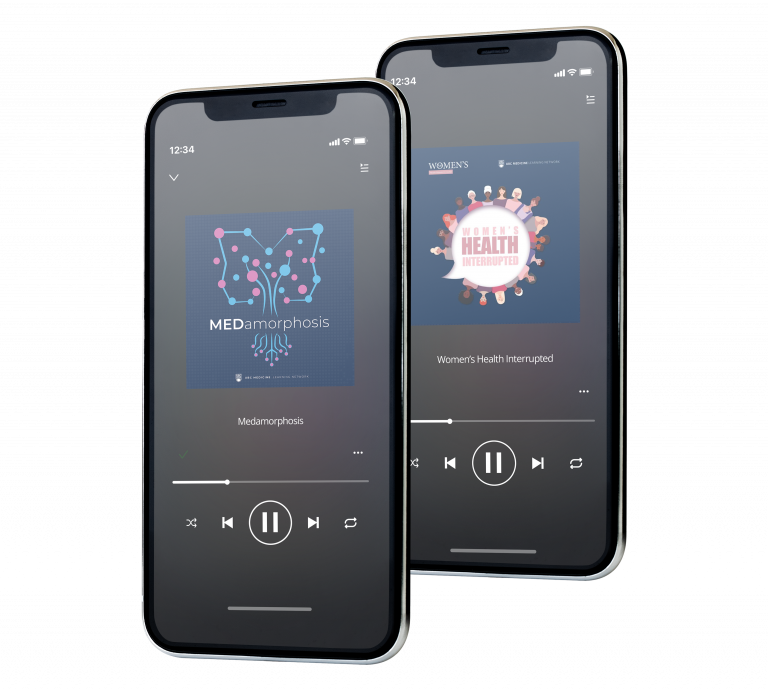
Facilitating Change and Continuous Improvement at the UBC Faculty of Medicine
Educational Technology Highlights for 2023-2024
The Digital Solutions, Educational Technology (EdTech) portfolio facilitates efforts by faculty and learners to enhance the educational experience of developing healthcare providers through innovative approaches.
We had a very successful year in 2023-24. Working collaboratively with our partners, we were able to have a positive impact on the Faculty’s societal and educational goals to transform health for everyone.

Supporting Program Expansions
Supporting Innovative Learning Spaces for Expanded Programs
Speech Language Pathology (SLP) is expanding and distributing its program for the 2024/25 academic year, adding 12 new learners in Victoria to the existing cohort of 36 at UBC Point Grey. EdTech is supporting faculty in their transition to a distributed model of teaching and learning, which will be delivered via new technology enhanced learning spaces in both Vancouver and Victoria.

EdTech collaborated with SLP and our partners at Core Technologies (CT) and UBCIT AV to ensure the new learning spaces reflect teaching methods and the requirements of this unique program. EdTech continues to work with faculty to support the pedagogical transition through workshops, tours, and building connections with other health professions that have already experienced this change.
Department of Medicine Strategic Vision Promotion video




Spanning 18 divisions and encompassing over 1500 members across 32 sites, Medicine is the Faculty’s largest department. To engage its extensive membership in the launch of their new strategic plan, leadership collaborated with EdTech to create a promotional video. The visual celebration, Transforming Health Together, features Dr. Anita Palepu, Dr. Mypinder Sehkon, and Dr. Seonaid Nolan, showcasing the rich diversity and impactful research within this department.

DID YOU KNOW?
Our YouTube channel, @ubcmedvid, has 5 times the subscribers of all other Canadian medical school channels combined and is one of the most watched medical school channels on YouTube, with over 200,000 subscribers and nearing 15 million views.

SupportinG Innovative Educational solutions
Flipped Classroom Evaluation
The Department of Dermatology collaborated with EdTech to evaluate the impact of a flipped classroom approach implemented during the COVID pandemic for Dermatology Week in the Undergraduate Medical program. Data was analyzed from Panopto, Entrada, Slido, as well as student feedback from course evaluations provided by the Evaluation Services Unit (ESU). The final report offered a comprehensive view of the impact of a flipped classroom approach during Dermatology Week, highlighting successes and identified opportunities for improvement. This successful approach serves as a model for other departments, leading more UGME courses to consider adopting a flipped classroom model.
The Flipped Classroom Approach



Leveraging Analytics to Enhance Undergraduate Lecture Engagement
Faculty academic leaders sought to better understand student engagement with Panopto lecture recordings versus their reported habits. EdTech produced a comprehensive report that addressed faculty members’ questions and identified new areas for investigation, such as significant differences in view counts between recordings of the same class and specific sections of lecture recordings that learners tend to skip or re-watch. These findings generated significant interest in exploring analytics for continuous quality improvement of lectures.

Histogram of video view counts in 50-unit groupings reveal outliers at both ends, highlighting opportunities for further exploration.
DID YOU KNOW?
The UBC Medicine Learning Network, Canada’s only medical school podcast network, is launching its 8th show in fall 2024, and its podcasts have been downloaded over 35,000 times.


Improving Education through User-Centric Solutions
User Experience Review in a Health Professions Online Course
The Department of Occupational Science & Occupational Therapy (OSOT) enlisted EdTech to help improve their Cognitive Behaviour Therapy (CBT), and Dialectical Behaviour Therapy (DBT) online course in Canvas. EdTech consulted with faculty, reviewed course evaluations, and hosted student focus groups to identify course strengths and opportunities for improvement.
The results of this user experience process included reorganizing the course for better flow, spacing out readings, and including only essential portions of academic papers. The course was repositioned within the curriculum to align with student schedules, and further communication explained the efficiency of the new online format.

CBT/DBT Redesigned Canvas Course: Improved content flow, streamlined readings, and eliminated superfluous material.
Clinical Assessment Process Improvement in Year 3 of the Undergraduate Medicine Program
The final phase of this educational process improvement initiative implemented two tools to address challenges from the previous approach.
For Learners:
Learners can now track their completion of 50 direct observations (DO) during their rotations via an automated Qualtrics report.
For Administrators:
A customizable reporting dashboard was introduced for administrators, enabling them to easily filter, save, search, and export custom reports on learners’ DO completion. This replaces the previously tedious process of manually tracking and building reports on learners’ DO progress and frequently sharing updates with them individually.

The newly redesigned dashboard enables admins to effortlessly filter, save, search, and export custom reports on learners’ DO completion.
Data Highlights
50
Direct observation completions can now be tracked automatically
86%
Of admins providing positive feedback during user evaluations
80%
Of students providing positive feedback during user evaluations
User Experience (UX) Driven Improvements in Postgraduate Medical Education
Following the transition to a Competence by Design (CBD) approach, UBC residents, faculty, and staff faced technical and process-related challenges. A comprehensive review of the assessment process led to a UX summary report with specific recommendations. Changes targeted fixing data accuracy and improving maintenance, enhancing reporting tools, and feature enhancements to improve dashboard usability. Efforts also focused on reducing dashboard loading times and simplifying the evaluation process. These changes aim to ease frustrations and improve CBD assessment efficiency, ensuring the platforms meet the residency program needs.

